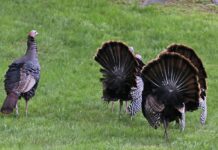Like most Americans of 1955 or so vintage, the lovely Catherine and I will spend time this week recalling our personal whos, whats, whens and wheres of President John F. Kennedy’s murder, funeral and burial 50 years ago.
It is likely, though, we won’t talk much about JFK’s politics and policy because we were too young to be aware of either. The news of his assassination, however, did mark a beginning of our greater education on government, public policy and politics. That education continues.
The moment
And, yes, I remember exactly where I was and who told me of Kennedy’s death that early Friday afternoon, in November 1963: I was slurping cold water from a drinking fountain after our afternoon recess when a fourth grader, Douglas M., passed by and said, simply, “The President’s been shot and killed.”
I finished my slurp, looked up and, like any schoolboy might, said, “Nuh uh.”
“Uh huh,” Doug insisted, “I ain’t lying.” He didn’t look like he was lying. “Go ask anybody,” he said.
I didn’t have to.
In the 10 minutes my classmates and I had been on the playground, the awful news of JFK’s assassination had ricocheted off of every hill and mountain in America to finally reach our quiet, small Lutheran school in southern Illinois. When we returned to our desks moments later, our teacher, Mr. Tetting, led us in a prayer for the Kennedy family and our nation.
We then went home and did something we had never, ever done before: we watched television — mostly the owlishly wise-looking Walter Cronkite — during the day for the next three days.
Routines
National tragedy or not, certain farm routines continued. Cows were milked, fed and bedded, corn was picked (no farmer finished harvest by Thanksgiving back then) and church was attended.
In fact, the Sunday after the assassination, my family and I were walking the long sidewalk to the back door of my grandparent’s house for our usual, after-church dinner when my grandmother flung open the screen door to its tiny porch and announced, “Hurry, they just shot him! Shot him on TV!”
Him was Lee Harvey Oswald, they was Jack Ruby, and we ran up the porch steps, through the kitchen and into the living room to watch the resulting chaos on Grandpa’s big black-and-white television. We sat in silence until Grandma said, “It’s all unbelievable. I need to make gravy.”
The plan
Sometime during that family dinner it was decided that my father’s family — parents, sisters, brothers-in-law, aunts, uncles, nieces and nephews — would all come to our farm the next day, Monday, a national day of mourning and the day of the Presidential funeral. The plan was to hunt quail and rabbit in the morning and watch the funeral and burial in the afternoon, and that’s exactly what happened.
What didn’t happen was work. I had never seen the big farm of my youth — more than 900 acres, 100 milk cows, four hired men, my father — not work on a workday. This was a first and, in fact, a last.
That day a sad, respectful silence fell over our farm and nation, comparable only to the deeply sad, awful silence that followed Sept. 11, 2001.
Reverence
Strange, but I don’t remember us eating the day of President Kennedy’s funeral (that, too, would have been a first in the history of German Lutheranism) but I know we must have. I do remember, however, almost every detail of the funeral procession because of the reverent silence the entire, extended family observed during the TV broadcast of it and the burial.
Historians say that television came of age that weekend; it grew from an occasional fancy to a national need because it brought America together to grieve and grow. It did just that, and so did we.
And now we remember because we cannot, will never, forget.
© 2013 ag comm













